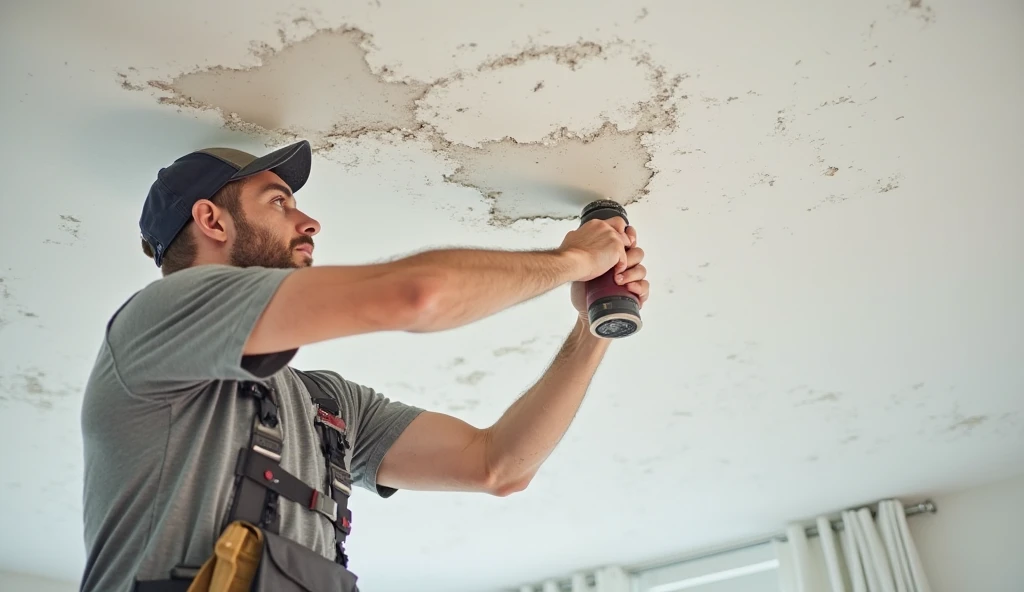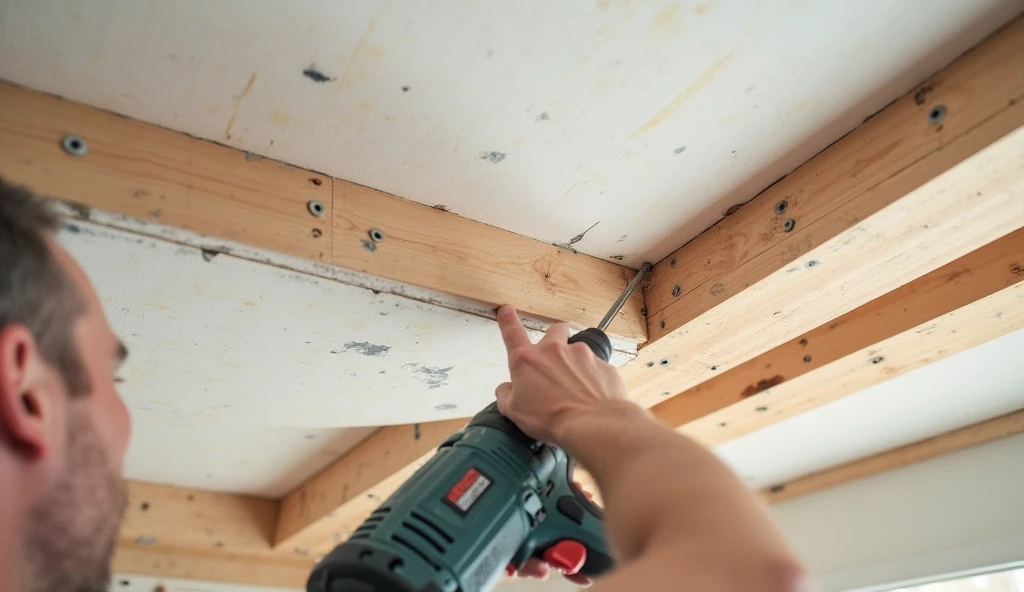When choosing the best ceiling contractors near you, evaluate the contractor’s years of experience specifically in residential ceiling projects. This measure of longevity can be a strong indicator of their proficiency and knowledge in handling similar tasks. It's beneficial to seek evidence of their past projects through case studies, testimonials, or reviews, which can provide insights into their success rates and quality of work. Consider how many residential projects they've completed and their level of expertise in various styles and materials, as versatility can lead to a more rewarding and customized experience. Engaging a contractor with a proven track record in diverse residential works ensures you receive top-notch service and results.

Assessing a contractor's specialization in various ceiling types is critical for ensuring the best match for your specific needs. Whether you're interested in drop ceilings, acoustical ceilings, or other types, a contractor with a specialized portfolio can offer the expertise required for premium installations and repairs. Look for evidence of their proficiency, such as showcasing diverse projects in their portfolio, which demonstrates versatility and knowledge across various ceiling types. Additionally, inquire about their familiarity with particular installations and repairs that pertain to your desired ceiling type, as specialized knowledge can lead to smoother, error-free execution of your project.
A contractor's local reputation plays a significant role in determining their reliability and quality of service. Research online reviews and ratings on platforms like Google and Yelp to get a sense of their standing within your community. Networking with local homeowners and builders can also yield valuable recommendations and insights into top-rated contractors near you. Furthermore, certified contractor lists and local trade affiliations often highlight trustworthy options, making it easier to find reliable professionals. Ensuring that your chosen contractor enjoys a positive local reputation and is conveniently located enhances both the efficiency and effectiveness of the project, providing peace of mind throughout the process.
To ensure a ceiling contractor's reliability, it is crucial to verify that they possess the necessary licenses and permits for ceiling installation in your area. This compliance demonstrates that they adhere to legal standards required by your jurisdiction. Additionally, confirm that the contractor carries insurance, including liability and worker’s compensation, to safeguard against accidents and damage during their service. Understanding your state's specific regulations for ceiling work will ensure that the contractor’s operations are both compliant and secure. Proper licensing and insurance are not just procedural formalities but essential protections for you as a homeowner.
When selecting a ceiling contractor, pay attention to their industry certifications, which signal their commitment to professional standards and best practices. These certifications often mean the contractor has passed certain criteria established by reputable industry organizations. Furthermore, learning about their completed training programs can provide insight into their ongoing education and mastery of new techniques or technologies relevant to ceiling installations. Affiliation with esteemed organizations also indicates a dedication to maintaining high-quality work and staying updated on industry advancements. These credentials are a testament to the contractor’s expertise and professionalism.
Obtaining references from past clients is a critical step in evaluating a ceiling contractor's reliability and workmanship. A list of references can offer firsthand accounts of their performance and give you confidence in their capabilities. Next, review the contractor's portfolio to examine the range and quality of previous ceiling installations. This review helps ascertain their style versatility and craftsmanship. Additionally, contacting references to discuss their experience and satisfaction with the contractor's communication and the final product provides valuable insights. Such due diligence ensures that you choose a contractor who delivers quality outcomes and maintains excellent client relations.
When considering ceiling projects, it's crucial to understand the services offered by contractors. These services typically include installation, repair, and maintenance. A well-rounded contractor should be able to provide detailed descriptions of their service offerings. It's advisable to ask contractors to clearly outline what each service entails and how it aligns with your specific project specifications. Contractors who offer comprehensive consultations can be beneficial, as they will discuss your needs and suggest the best solutions tailored to your space and budget.
Selecting the right materials is a key aspect of ceiling installations. Common materials include drywall, ceiling tiles, and fiber options, each with distinct advantages and disadvantages. For example, ceiling tiles can improve room acoustics and insulation. When acoustic optimization is a priority, consult with your contractor about available sound insulation solutions. Acoustic ceiling tiles, for instance, can effectively reduce noise levels. Evaluate the contractor's recommendations based on how well they meet your specific requirements and financial considerations. Making informed decisions about materials ensures that the ceiling installation fulfills both functional and aesthetic needs.
Setting clear timeline expectations is essential for a successful ceiling installation project. Outline anticipated start and completion dates with your contractor to ensure the project fits within your schedule. Effective communication practices are equally important; discuss preferred methods and frequency of communication to maintain transparency throughout the project. A professional contractor will provide regular updates on progress, including any potential delays. This approach fosters trust and allows for adjustments if unforeseen issues arise, ensuring the project proceeds smoothly. Maintaining open lines of communication contributes significantly to the project's success and helps to mitigate misunderstandings.
When seeking contractor quotes, it's essential to prepare a detailed checklist to enable comprehensive and precise bids. This checklist should include all elements pertinent to your project, ensuring nothing significant is overlooked. Encourage multiple contractors to conduct site visits; this allows them to understand your specific requirements and offer more accurate estimates. During these interactions, request a clear breakdown of costs, categorizing them into materials, labor, and overhead. This transparency will illuminate the pricing structure, helping you to compare providers effectively and identify the most cost-effective solution.


Thoroughly scrutinizing contractor estimates for hidden costs is vital to avoid unwelcome surprises during the project. Costs such as disposal fees for materials or unexpected repair expenses can significantly escalate the final bill. To mitigate this, ensure there's a clear agreement on what's included in the estimated price. Discuss potential contingencies upfront, asking about likely unforeseen charges and how these will be managed. This proactive approach will protect you from escalating costs and unmet budget expectations, making for smoother project execution.
Understanding red flags in contracts is crucial for protecting yourself legally. Be wary of vague language and terms, such as unspecified deliverables, unreasonable payment schedules, or the absence of warranty clauses. Each contract should clearly define the project scope, timelines, and breakdown of all costs. This precision helps secure your interests and ensures accountability from the contractor. If you encounter any ambiguous terms or conditions, consider consulting a legal expert. They can provide insights on contract terminology or implications, ensuring you're adequately safeguarded and facilitating smoother project collaboration.
Focus on a contractor's experience in residential ceiling projects. Their years of practice, case studies, testimonials, and completed projects can provide insight into their expertise and reliability.
Specialization in ceiling types like acoustical or drop ceilings ensures a contractor can meet your specific needs, offering expert installations and repairs tailored to your project.
Local reputation helps assess a contractor's reliability and service quality. Online reviews and community feedback provide a clearer picture of their performance.
Verify licenses, insurance, industry certifications, and references. These ensure adherence to legal standards, commitment to quality, and past client satisfaction.
Request detailed cost breakdowns and clarify inclusions. Discuss potential unforeseen charges up front to avoid surprise expenses.